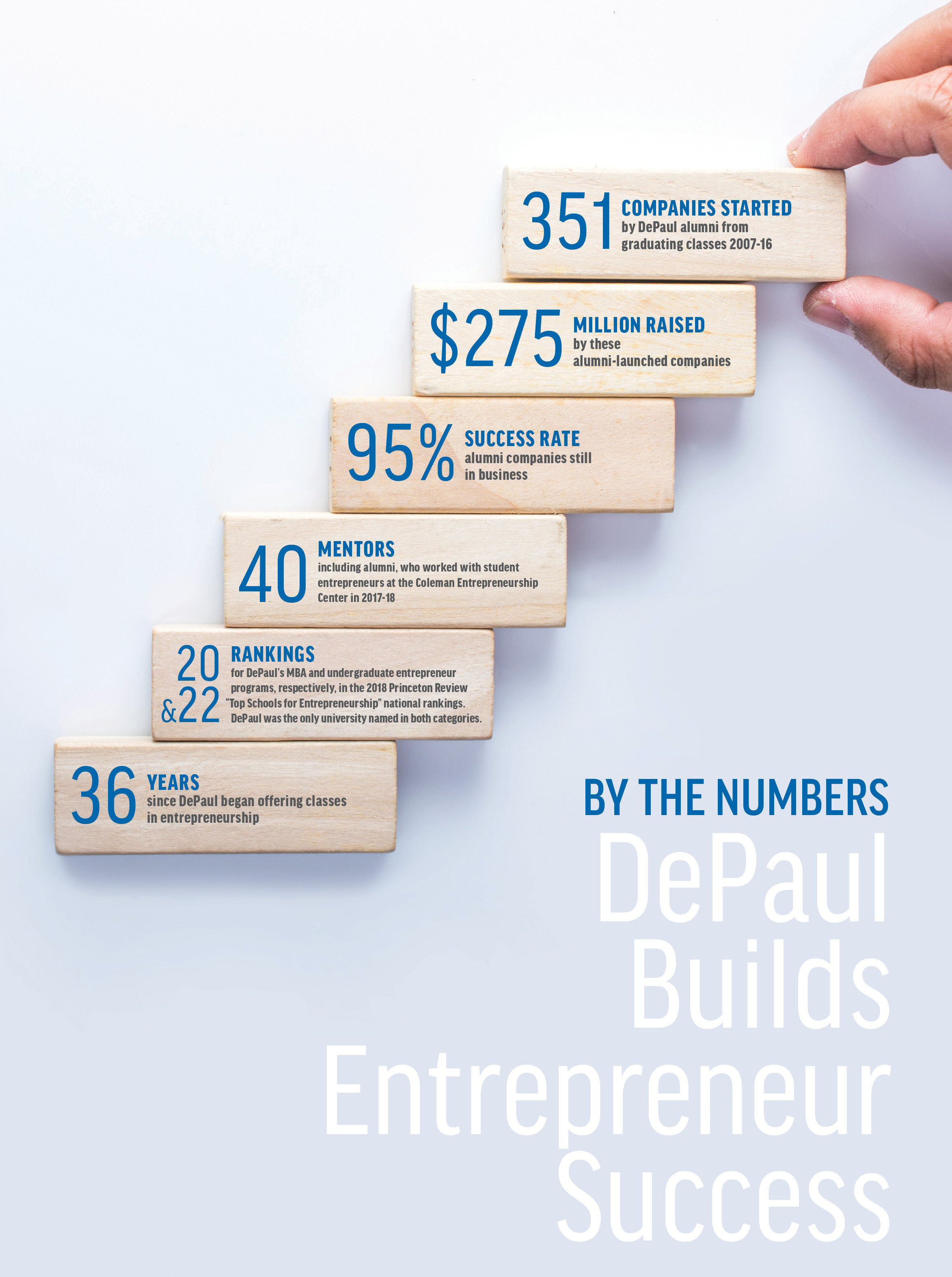Year: 2018
Innovators for Good
How DePaul is Fostering Leaders of Purpose-Driven Ventures
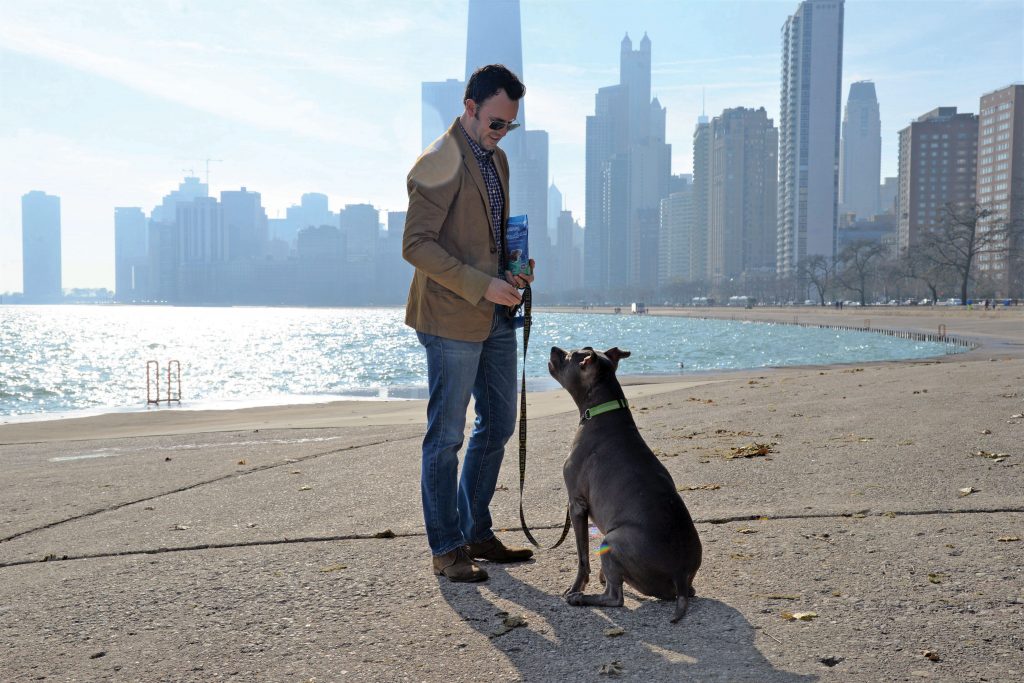
After spending years working as a chef throughout the U.S., Michael Cody (MBA ’13) came to DePaul to study entrepreneurship and sustainable management so he could start a business that combined his two passions: animals and the environment.
Cody, an avid fisherman, learned about the increasing number of Asian carp in U.S. waterways in an environmental science class he took while seeking his MBA. Asian carp, an invasive species, endanger native fish by eating their food sources. They are now making their way to the Great Lakes.
With this environmental problem in mind, Cody and his business partner, Logan Honeycutt, began devising pet food recipes using Asian carp. They quickly found their own dogs loved the treats.
“Turning something that people perceive as trash into a moneymaker was a really appealing idea to me,” Cody says. “I hadn’t heard about (doing) that until I took the sustainability classes.”
In 2015, Cody and Honeycutt launched BareItAll Petfoods and now offer one- to seven-ingredient treats for both cats and dogs. They employ fishing crews to catch the Asian carp, and they donate a portion of BareItAll’s profits to local animal shelters.
Cody is one of a growing number of DePaul students and alumni who are starting entrepreneurial ventures driven by a purpose. Bolstered by DePaul’s entrepreneurship program and resources, and grounded in Vincentian values, these entrepreneurs are creating businesses and nonprofits that are solving problems in Chicago and beyond. As social responsibility becomes an increasingly important part of business, the Driehaus College of Business is fostering these leaders to become innovators for good.
Do Good. Do Well.
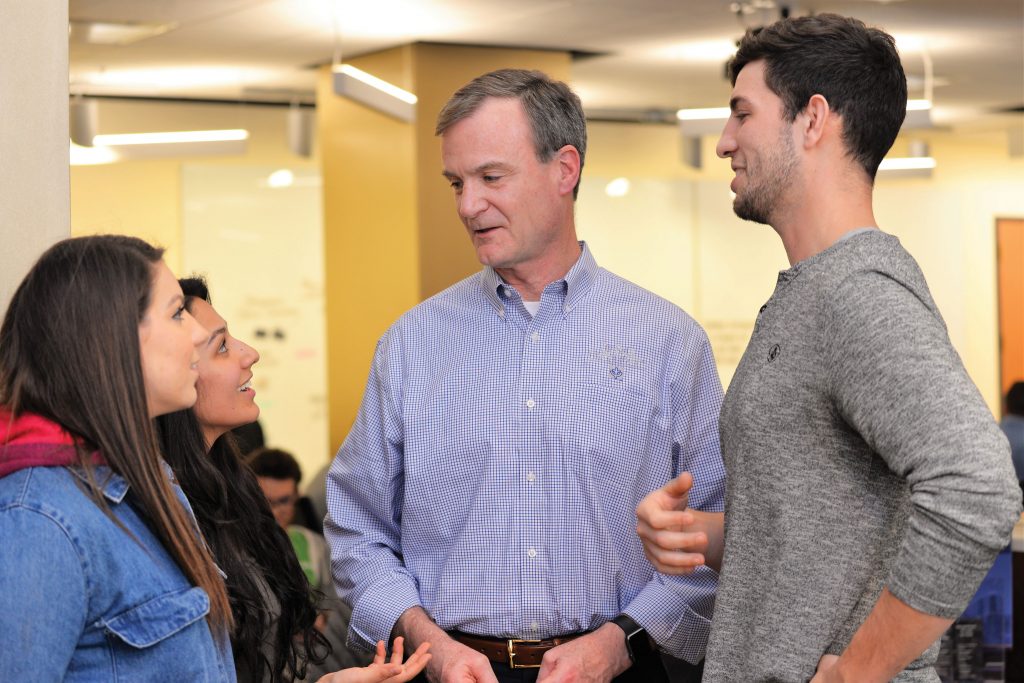
We wanted to change the conversation from ‘How much money can I raise?’ to ‘What problem am I solving?’”
Since opening its doors in 2003, the Coleman Entrepreneurship Center has been helping DePaul students and alumni start and grow businesses. The center hosts year-round business development workshops, programs and events. In 2017, the center created the Purpose Pitch Competition for DePaul students and alumni.
“Our biggest event of the year has purpose right at the beginning of the name,” says Coleman Executive Director Bruce Leech (MBA ’81). “When we started our competition last year, we wanted to change the conversation from ‘How much money can I raise?’ to ‘What problem am I solving?’”
The competition fits the center’s new focus. Following a daylong retreat last year involving constituents and board members, the center’s leadership developed a strategic plan and mission statement that is reflected in its new tagline: Do Good. Do Well.
Drawing from that mission, Leech tells students and alumni that it’s important for entrepreneurs to have a sustainable, goal-directed business idea that aims to solve an existing problem. “Helping the community is in the very fabric of what DePaul is all about. We’re here to make a difference in our community,” Leech says. “We’re one square mile from anything our students would need in the way of resources to get their businesses started.”
Creating Positive Impact
How can organizations achieve purpose?
That’s the question Adam Fridman (BS ’99, MS ’03), founder of the digital marketing agency Mabbly, is attempting to answer through the ongoing research project and online platform ProHabits.
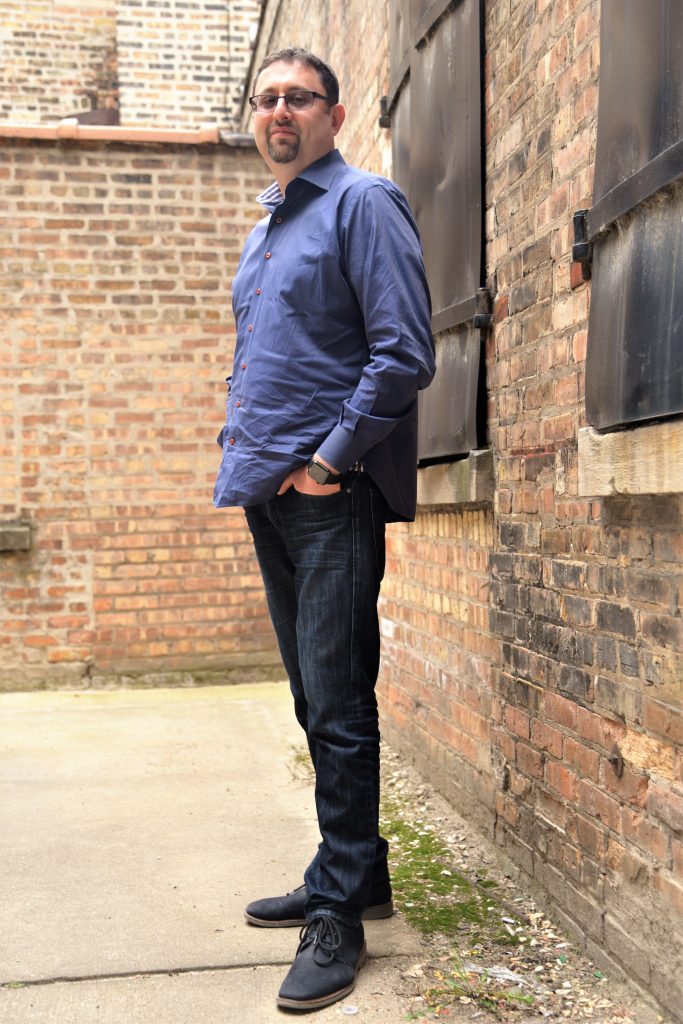
Now in the alpha stage, ProHabits offers three types of habit-forming activities that align with organizations’ values: ProLeadership, ProInnovation and ProFeedback. Each activity is sent via email to employees to encourage their self-actualization in hopes of improving business outcomes. The recommendations are the result of more than 500 interviews with thought leaders and entrepreneurs from around the world on their daily habits and personal growth activities.
We want to prove that if you are your best self, business outcomes will be improved,”
says Fridman, who prefers to use the word “tribe” instead of employees. “Companies will make more money, and there will be better customer service and better sales.”
The research project also informed the book “The Science of Story,” which Fridman co-wrote with Mabbly CEO Hank Ostholthoff. The book is “by and for those dedicated to building inspired organizations,” according to the Mabbly website, and outlines steps for organizations to find their purpose, ignite their tribe and create a positive impact on the world while running a successful business.
Fridman’s business philosophies stem from working in investment banking for several years before leaving to start his own business.
“I wasn’t built to sit in front of a computer for 12 to 15 hours a day, crunching numbers so that I could work to make more money,” says Fridman, who helped the Coleman Center organize the first Purpose Pitch Competition.
Now, Mabbly is committed to helping organizations tell their story through purpose-first marketing. “I think that if organizations figure out a path to help people self-actualize at work, which includes not just purpose but other aspects, they will move the world in a more positive way,” Fridman says.
Social Enterprise at DePaul
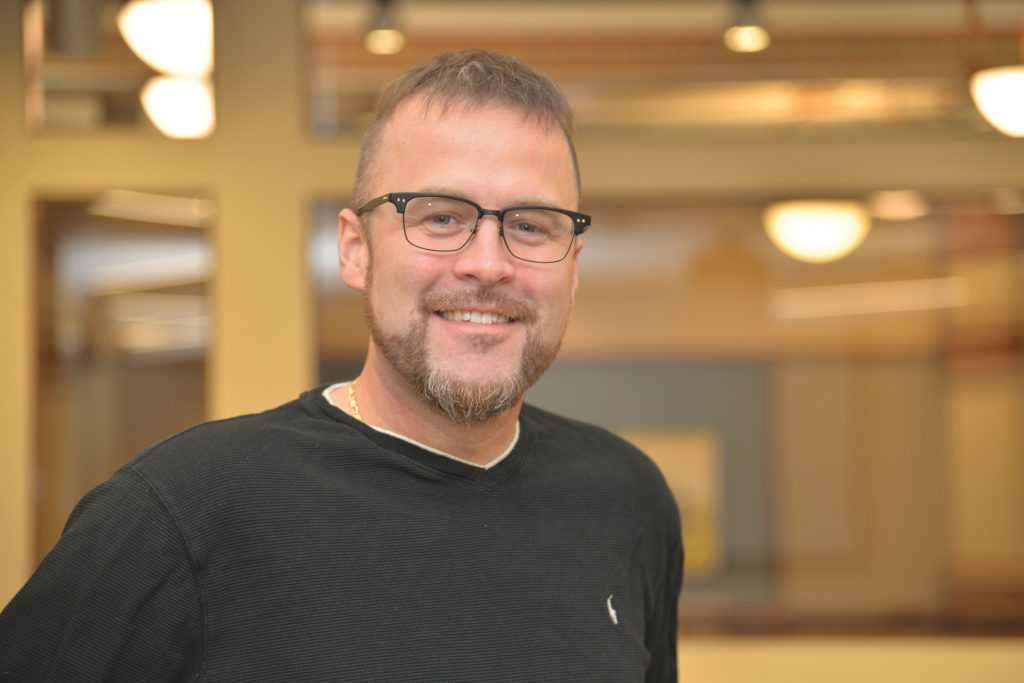
For Management and Entrepreneurship Professor Patrick J. Murphy, improving the world starts in the classroom.
Murphy, who has published six scholarly articles on social enterprise, developed the college’s first social enterprise course, which is offered in the DePaul MBA program. The course, Social Enterprise, examines the differences between social enterprise businesses and for-profit and nonprofit businesses.
Social enterprise models, Murphy says, maximize social impact while generating revenue. He offers as an example Sweet Beginnings LLC, a Chicago-based organization that employs men and women returning from incarceration to produce honey-infused and all-natural body care products.“Social enterprises are necessary because they denominate value in different kinds of ways,” says Murphy.
Just as we can measure economic value over time, we can measure social value objectively over time. We can track lower crime rates, higher education rates and other community-related data.”
In 2017, Murphy organized DePaul’s first Social Enterprise Pitch Competition, where students pitched business ideas that supported a social good. Three DePaul student winners received $8,000 in scholarships, as well as $1,800 worth of website development services.
Murphy pointed to DePaul’s Vincentian values as fostering business students who want to do good for the community. “Our culture at DePaul is almost like a strategic weapon for doing world-class work in this area.” He also ties the popularity of starting social enterprises to generational shifts. “Doing good for the community today often starts with young people researching the world around them based on personal interests and eventually finding unique ways to embed what inspires them into their university education.”
Doing Good in the Nonprofit Sector
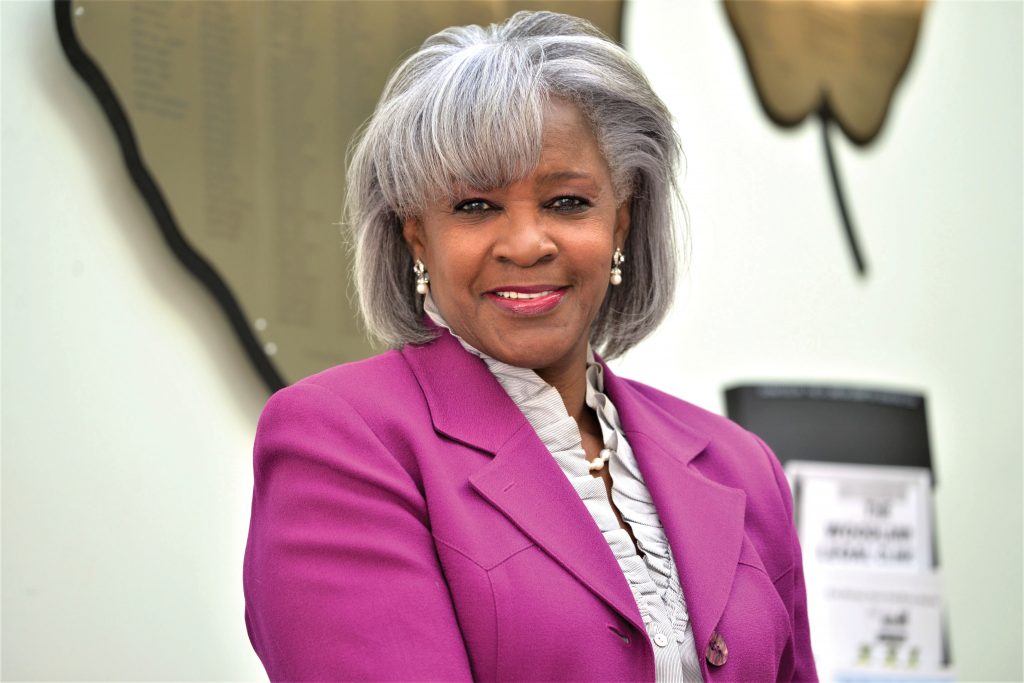
Helen Hammond Redding’s (MBA ’78) purpose for doing good in the community stems from a personal tragedy.
In 2003, Helen’s youngest son, Christopher Redding, went jogging while visiting home during Thanksgiving break from college. His parents had learned he suffered from exercise-induced asthma one year before, but never knew how important it was for him to carry his inhaler. That morning, Christopher died from an asthma attack.
Years later, Redding retired from a long career in banking and founded the Christopher D. Redding Youth Asthma Foundation.
“When Christopher died of the asthma attack while he was jogging, it just hit us that we were not educated enough to know that Christopher potentially had a deadly disease,” Redding says. “So we started our foundation to educate other parents and the community so that they would not have to suffer the same tragedy.”
The foundation, which Helen operates with a nine-member board of directors, including her husband and middle son, primarily educates people in under-served Chicago-area communities about asthma management practices. It partners with Mobile Care Chicago to bring asthma vans to schools and community centers. The foundation also works with the Respiratory Health Association to support an asthma management curriculum in those schools and communities.
When I go and talk to community groups, I impress upon these parents and caregivers how critical it is that they, as well as their children, get educated,” Redding says.
“That’s why we go out and try to do as many seminars and workshops as we can, even if there are only 10 or three people there. We just want to get the word out that asthma can kill if it isn’t managed, and there are some things you can do personally to help your child or relative who has asthma.”
Redding’s foundation also has awarded 17 scholarships and educational grants totaling about $25,000 to student-athletes with asthma across the country and has provided sponsorships to allow young children to attend asthma camps. She hopes one day to own and operate a summer camp for kids with asthma, as well as a mobile asthma van that will serve athletic and recreational venues in under-served communities.
“It’s a tragic disease, and compared to violence in Chicago, (asthma) doesn’t really get the attention that it deserves,” says Helen, who previously worked as the state director of community development for Citibank Illinois, where she helped secure funding and grants for Chicago nonprofits. “We’re a small foundation, but we’re doing some good.”
Innovation in the Special-Needs Community

We’re creating an ecosystem of impact by providing value to three different customer bases. Our products and the way we do business are purpose-driven.”
As winners of the 2017 Purpose Pitch Competition, Elizabeth Ames (MBA ’15) and her sister Melissa’s goal is to help children and adults with special needs, one subscription box at a time.
Their for-profit business, EarlyVention, is a monthly subscription service that sends a box of adapted activities designed to help parents engage with their children who have autism and different abilities.
A special education teacher and autism home therapy consultant, Melissa knows firsthand the challenges parents face as they try engaging their children. “There are a lot of materials for parents,” Melissa says. “But everything I could find was downloadable, not ready-made, so I would send links to parents and say, ‘This is a great worksheet, try using this with your child or these visuals.’ Then I’d follow up and ask, ‘How did it go?’ And they’d tell me, ‘Well, I never got to do it, and I didn’t have time to make the materials.’”
To answer this need, Melissa began designing materials for parents at home in the evenings. The sisters’ mother, who worked as director of special education for LaGrange Highlands School District 106, based in LaGrange, Ill., suddenly passed away from cancer. She had always encouraged them to start a business like EarlyVention.
Elizabeth began working on a business development plan with her sister after enrolling in the DePaul MBA program. They received guidance from business professors, classmates and the Coleman Entrepreneurship Center. The sisters continued to raise funds through several pitch contests before winning the Purpose Pitch Competition.
“Purpose Pitch gave us enough security to know that we can keep going with some extra cushion,” Elizabeth says. “It provided a great safety net, and it will provide us with a better website, which is our storefront, so it’s only going to enhance our business.”
EarlyVention also engages adults with autism and special needs to help create the materials in the boxes. The sisters would like to ship the boxes internationally and create YouTube videos that demonstrate how parents can use the materials with their children.
“Not only are our products directly benefiting children and their parents, as well as caregivers, therapists and teachers who love and care about them, but we also have the purpose of providing vocational opportunities to adults with special needs,” Elizabeth says. “We’re creating an ecosystem of impact by providing value to three different customer bases. Our products and the way we do business are purpose-driven.”
By Jaclyn Lansbery | Photos by Kathy Hillegonds
Transforming Students Into Hospitality Leaders
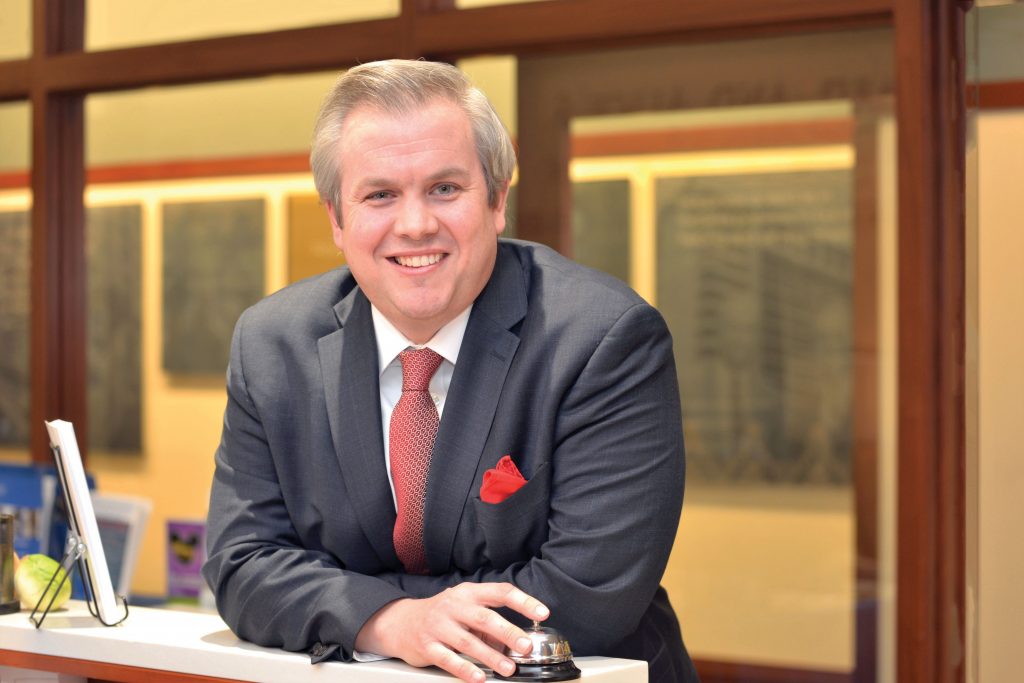
What differentiates us is what we do outside of the classroom.”
Nick Thomas’s transformation from a shy teen in Ellicott City, Md., to an outgoing, globe-trotting hospitality professor at DePaul began with a part-time job as a hotel bellman.
“I really loved the fact that it wasn’t a monotonous job,” Thomas recalls about working as a bellman and, later, front-desk agent at a Hilton hotel outside of Baltimore during high school. “I was very introverted, but when I would get behind the front desk of a hotel, I would get very extroverted. I could talk to people, and I enjoyed that. So, one day, I went to my manager and said, ‘I think I want to do this for my career.’”
Thomas finished high school and headed west to pursue a bachelor’s degree in hotel administration at the University of Nevada, Las Vegas (UNLV). He continued to work in hotel operations while in college and, after becoming a hotel employee trainer, developed a strong interest in hospitality teaching and research. At UNLV he also met his wife, Lisa, who shared his passion for the hospitality industry. The Thomases both completed master’s and PhD degrees in hospitality administration at UNLV, and they taught and held leadership roles at the university’s Singapore campus hospitality program.
In 2011, the couple joined the faculty of DePaul’s School of Hospitality Leadership. Nick directs the school’s J. Willard and Alice S. Marriott Foundation Center for Student Development and Engagement, and, since fall 2016, he has served as interim associate director of the school. The Thomases’ teaching continues to have global reach; they co-lead a hospitality study abroad course that visits Hong Kong, Singapore and Macau. This academic year, Nick also taught an online course that paired his DePaul students with hospitality students in China.
The School of Hospitality Leadership’s strength, Thomas says, is its emphasis on real-world learning and innovation. “I feel really confident that what we do inside the classroom is solid, it’s rigorous,” he says. “The students are acquiring knowledge and figuring out how to apply that knowledge. But I think what differentiates us is what we do outside of the classroom—how we do industry job recruitment, the kind of personalized career guidance that the (Marriott) center provides, the mentorships that faculty and industry offer students, and the half-dozen student clubs we have. For a program of our size, I think we have an extremely large footprint in the hospitality industry.”
The best part of his job, Thomas says, is seeing students transform into budding hospitality leaders through the school’s industry partnerships and hands-on learning.
“Getting emails from students saying ‘I got the job offer’ and ‘I got into the management training program that I want,’ that’s one of the most gratifying things in my career.”
By Robin Florzak | Photo by Kathy Hillegonds
DePaul Thought Leader Shares Wisdom on Ethical Decisions
Business Insights From Driehaus Faculty Research
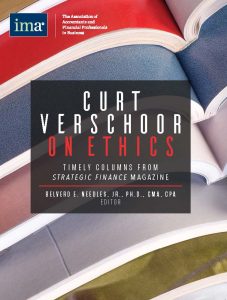 Curtis Verschoor’s background is as impressive as it is extensive. At DePaul, he is the Emeritus Ledger & Quill Research Professor in the School of Accountancy and Management Information Systems and honorary Senior Wicklander Research Fellow at the Institute for Business and Professional Ethics. He is a researcher, consultant, speaker and author of more than a dozen books. He has served as a senior corporate finance officer for several international public companies and accounting firms. But above all, Verschoor is a passionate advocate for business ethics.
Curtis Verschoor’s background is as impressive as it is extensive. At DePaul, he is the Emeritus Ledger & Quill Research Professor in the School of Accountancy and Management Information Systems and honorary Senior Wicklander Research Fellow at the Institute for Business and Professional Ethics. He is a researcher, consultant, speaker and author of more than a dozen books. He has served as a senior corporate finance officer for several international public companies and accounting firms. But above all, Verschoor is a passionate advocate for business ethics.
At an age when most people are enjoying retirement, he is still on top of his game after being named a thought leader on trustworthy business practices by Trust Across America. His latest book, “Curt Verschoor on Ethics,” compiles some of his most important and relevant articles about management accounting and finance best practices from his monthly column in Strategic Finance Magazine. DePaul Accountancy Professor Belverd Needles, one of the foremost experts in international financial reporting and auditing, served as the editor, helping to select articles for inclusion from hundreds that Verschoor has penned.
Ethics is universally important to everybody,” says Verschoor.
“That is why I started this column. It benefits organizations, as well as individuals.”
Verschoor has been writing an ethics column for Strategic Finance since 1999. Topics range from whistle-blowing, executive compensation and sustainability to ethical case studies involving companies such as Volkswagen, Uber and Toshiba. His focus remains topical; he recently explored how millennials’ approaches to ethics differ from those of other generations. While Strategic Finance targets financial professionals, employees in any industry can find value in ethics, Verschoor believes.
“In all my research, I’ve found that organizations with a strong ethical culture are more successful than those that have a weak organizational culture,” says Verschoor. “Companies with ethical cultures avoid reputational damage that comes from unethical practices and are usually better off financially. A strong ethical culture is a keystone or underlying core value of a well-managed, well-organized entity.”
Verschoor also hopes that students and academics will be able to use his collection of articles as a resource. “There is something that happens in everybody’s life every day that has ethical implications,” says Verschoor. “That’s why ethics is so important.”
By Andrew Zamorski
Mentors Help Graduates Turn Dreams Into Reality
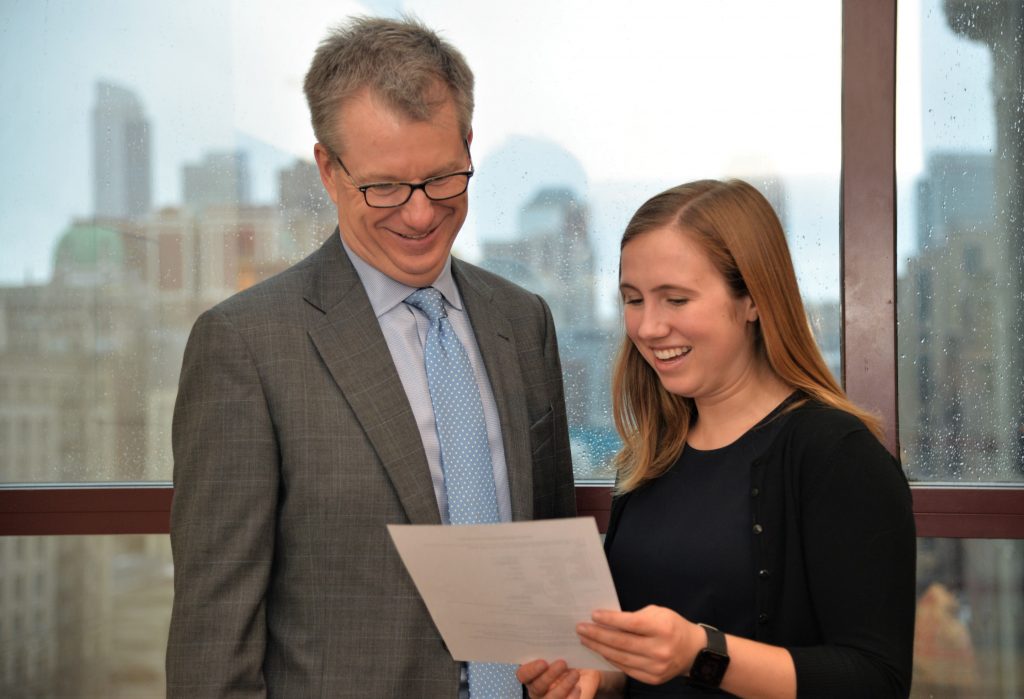
College graduates who, as students, were encouraged by mentors to pursue their hopes and dreams are twice as likely to feel engaged in their careers and fulfilled in their lives, according to a national Gallup-Purdue University survey.
That’s certainly the case for students, alumni and business professionals who participate in mentorships across the Driehaus College of Business. Business Exchange profiles three of these mentorships and how they have inspired both mentees and mentors.
Stories by Andrew Zamorski
The Right Choice
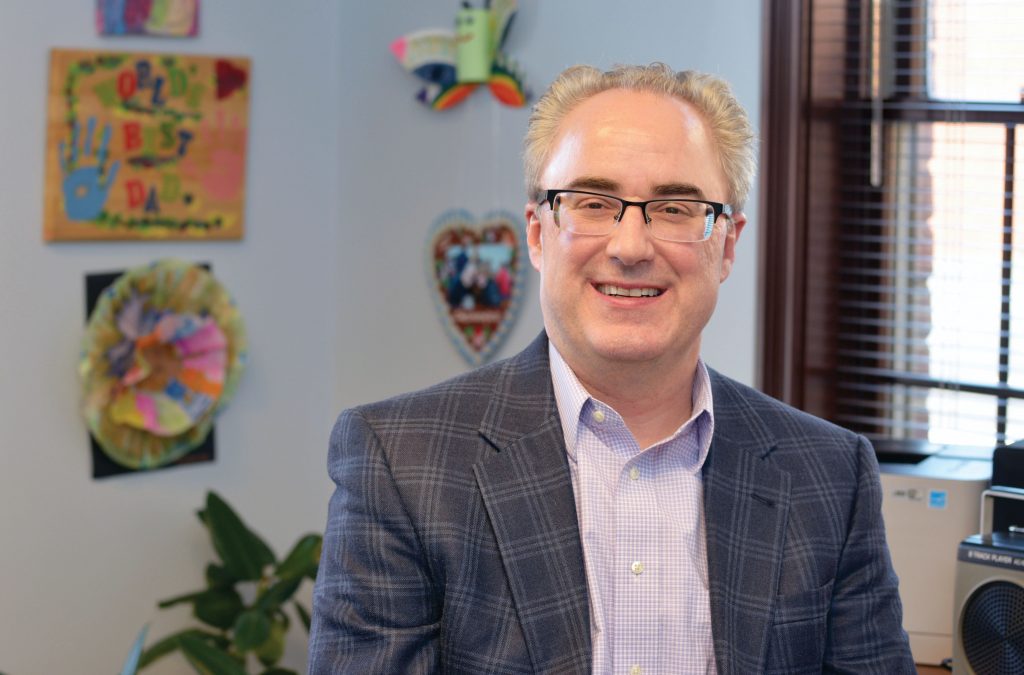
In 2000, Chris McCauley (MAC ’87) decided it was time to assess where he was in his career. He had graduated from DePaul 13 years before with a master’s degree in accounting and then began his career as an auditor with accounting giant Coopers & Lybrand (now PwC). He then moved on to Quaker Oats and later to Ameritech, in the benefits group.
He found that something new was calling to him.
“As much as I like working with numbers, I like working with people more,” McCauley says.
Now a Certified Financial Plannert with the Strategic Planning Group Inc. in Indianapolis, McCauley looks back on the first half of his career as great preparation for his current role. “I can quickly understand a person’s situation, and with an accounting background, I hit the ground running with their tax situation.”
McCauley came to DePaul as a transfer student, attracted to the outstanding reputation of the business school’s accountancy program. “DePaul is very open-minded about accepting transfer students’ coursework from other schools. I paid for my own education, so I was particularly grateful about that.”
McCauley, a native of Will County, just southwest of Chicago, enjoyed being away from home. “Living in Lincoln Park, getting on the ‘L,’ was very exciting.” Any anxieties he might have had were dispelled by Bro. Leo V. Ryan, C.S.V, then dean of the business school. “He got to know me by my first name. He was welcoming that way and just made me feel I made the right choice in DePaul.”
McCauley also connected with DePaul’s Vincentian mission. “I got a great deal out of those courses in religion and philosophy. They teach you how to be open-minded and think.” McCauley lives the mission not only by helping his clients, but also by serving on the board of a nonprofit that helps victims of violence and their families, and volunteering at his church and local Catholic school.
McCauley and his wife, Clarice (JD ’98), recently became members of The 1898 Society, an annual giving program DePaul founded for alumni who want to increase their commitment to the university and its students with an annual donation of at least $1,898. “What kind of got us was that 40 percent of the students are first-generation college students,” McCauley says. Helping financially challenged students with the ambition to make better lives for themselves is the McCauleys’ way of saying “thank you” to DePaul.
Join the 1898 Alumni Society by visiting alumni.depaul.edu/1898Society.
Multidisciplinary Backgrounds Great for Business World
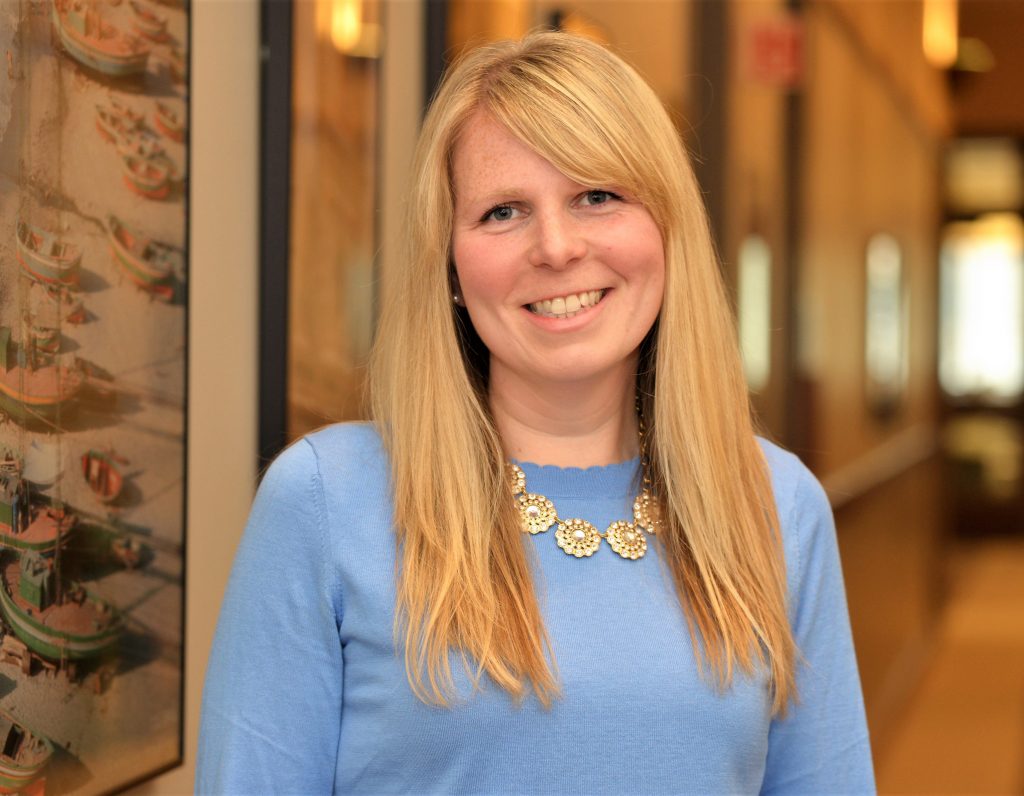
Erica Thewis is taking a nontraditional route to land her dream job. The one-time culinary creationist sifted through both tasty and unappetizing career choices before she realized that her true passion was helping people and organizations excel. Now, studying for her master’s degree in human resources (MSHR) at DePaul’s Kellstadt Graduate School of Business, Thewis hopes to find her metaphorical elusive black truffle—a job that combines her new career path with morsels of her multidisciplinary skills and talents.
Associate Professor of Management Jaclyn Jensen, the faculty director of DePaul’s MSHR program, understands the challenges that Thewis and others with multidisciplinary educations and experience face when looking for a job in their desired career.
“As much as we talk about the need to be diverse and open to different backgrounds and perspectives, sometimes recruiters can be too quick to judge a candidate,” says Jenson. “When you have two candidates side by side and one has come up with matching degrees, and one has come up through a different functional path, the person who has a more traditional background may get the edge.”
Jensen notes that there are ways to address employers’ hesitation to hire a candidate with a wide-ranging education and career background. She recommends building a network of contacts in the current desired field and connecting with mentors. The mentors are especially important because they can provide an insider’s knowledge of the industry and give advice on how to approach applying for jobs. Jensen also recommends building business knowledge through continuing education courses, certificate programs or getting an advanced degree. As for candidates like Thewis who are in the MSHR program, Jensen recommends seeking an internship so that they can receive on-the-job learning while studying in the classroom.
“Something that all applicants, whether traditional or multidiscipline, will need in order to be effective in their new role is business acumen,” says Jensen. “This is being able to have a clear understanding of how a business works. This includes a sense of how your organization makes money, its goals and strategy, and how your technical expertise plays a role.” Jensen notes that business acumen can be learned through experience, but it can also be supplemented through additional study. She also stresses that multidisciplinary-background candidates highlight their transferable skills and business acumen to help land a job in their new field.
Gathering Ingredients for Success
 Thewis, who has undergraduate degrees in art history and Italian and an associate’s degree in baking and pastry making, has impressive business acumen. While living in Memphis, Thewis opened Pistache French Pastry from her home, where she made fresh macaróns, chocolates and petits fours. She sold her baked goods at local farmer’s markets, on the online marketplace Etsy and through catering companies. After a few newspaper profiles about her venture and great word-of-mouth, Thewis hit it big in the Memphis food scene, which made her job both sustainable and fulfilling.
Thewis, who has undergraduate degrees in art history and Italian and an associate’s degree in baking and pastry making, has impressive business acumen. While living in Memphis, Thewis opened Pistache French Pastry from her home, where she made fresh macaróns, chocolates and petits fours. She sold her baked goods at local farmer’s markets, on the online marketplace Etsy and through catering companies. After a few newspaper profiles about her venture and great word-of-mouth, Thewis hit it big in the Memphis food scene, which made her job both sustainable and fulfilling.
“Pistache French Pastry truly was a learn-as-you-go experience,” says Thewis. “I discovered everything you needed to know about how to run a business. This was a smaller market, which gave me the opportunity to make mistakes and to learn from them. I also learned that I wanted to be a part of the business and not just on a pastry assembly line.”
Personal reasons brought Thewis back to Chicago where she decided to change professions. After searching for jobs online that infused her interests, Thewis became interested in the job postings for human resource roles.
“Baking is a solitary life, but I want to engage with people,” says Thewis.
I want to help people find their passion and get to a place where they feel valued at work. I also wanted to work in a business that has a strategy and goals that isn’t about the number of cakes that get iced.”
Mix in New Passions
Thewis applied to every HR job she found, but without any nibbles on her applications, she decided to look into an advanced business degree. While attending an info session at DePaul, she sparked a conversation with Anthony Cuellar, assistant director of recruiting for DePaul’s Kellstadt Graduate School of Business, who also has a multidisciplinary background with a bachelor’s degree in audio arts and acoustics and a master’s in counseling.
“Many students think that if they don’t have an undergraduate business degree, they are not qualified for graduate business school,” says Cuellar. “That is not the case.
Many times multidisciplinary backgrounds provide businesses transferable skills like conflict management, leadership and communication—skills the mean something in the real world.”
Cuellar also notes that DePaul has been seeing a sizable increase in business school applications from students with non-traditional backgrounds as well as career changers. In fact, DePaul’s full-time MBA student cohort entering in fall 2018 has applicants who are military veterans, healthcare practitioners, lawyers and other non-business careerists.
“Students coming from non-business backgrounds have an outside-looking-in perspective,” observes Cuellar. “The more a student is removed from their bachelor’s degree, the more professional experience and transferable skills they bring into the classroom. They are bringing different perspectives of leadership.”
Bake to Perfection
 Thewis is eager to take more human resources courses and to integrate all of the unique ingredients of her background into her new career, including her experiences of owning a business and studying art history.
Thewis is eager to take more human resources courses and to integrate all of the unique ingredients of her background into her new career, including her experiences of owning a business and studying art history.
“Art history is about analyzing and looking at everything critically,” says Thewis. “I bring those skills into the business world and try to look for the whole story, not just a solution to a problem. I am able to bring in real examples from owning Pistache into my business courses. I also like to consider the human aspect of a business and the way that people matter, which is why I am eager to get into the HR curriculum.”
Jensen agrees with Cuellar that multidisciplinary backgrounds bring new perspectives and transferable skills to the business world, but also recommends that non-business students take business courses.
“Businesses value the critical thinking skills and communication abilities and even the creativity of those who graduate with a liberal arts degree,” says Jensen. “A business degree offers those with a multidisciplinary background an opportunity to apply those skills in a business context while also showing an employer, through their new degree, that they have an appreciation for all the functional areas of business, like management, finance, economics and others. It also shows that the candidate appreciates that there is technical knowledge and skills associated with each of those different disciplines.”
Changing careers for those with a multidisciplinary background can be as tricky as nailing a perfect soufflé, but by mixing together the transferable skills from a diverse background with business acumen and education can prove to be a recipe for success.
By Andrew Zamorski
Connections: Mary Hendrickson and Greg Warsek

Everyone should get a mentor. It makes the world smaller, it gives you connections to the industry and it helps you find your direction.”
Real estate major Mary Hendrickson is no stranger to working with mentors. She was assigned to a commercial banker mentor in her real estate career management course for a short-term classroom project. Seeking even more advice about careers outside of the classroom, she jumped at the opportunity offered by Professor Stephen Bell, associate director of The Real Estate Center, to be paired with a second mentor.
“I was hoping to get more knowledge about the industry since I was just starting my first internship,” says Hendrickson. Since she was interning in the capital markets group at Jones Lang LaSalle (JLL), a global commercial real estate services firm, Hendrickson was paired with Greg Warsek, group senior vice president at Associated Bank, who manages a commercial real estate loan portfolio.
“Greg helped me figure out the grand scheme of what I was doing in my internship. He also helped explain his role in the banking industry, which made my job easier,” Hendrickson says.
Warsek serves on three university advisory boards, including DePaul’s Real Estate Center board. In the last 30 years, he estimates, he has mentored between 50 and 75 students, focusing on young professionals who are trying to make the right decisions as they go back to school or make job moves.
“When I first started looking for a job, I was helped by a friend of a friend who didn’t need to help me, but did it anyway,” says Warsek. “Now I am at the point in my career where I can make phone calls and introductions and get students’ résumés moved to the top of the pile.
“Being a mentor gives me a really important perspective (about working) with young people because I have three different generations of employees to manage,” says Warsek. “I learn a lot from them. They teach me how they view the world and what is important to them, and it makes me a better leader for Associated Bank.”
Hendrickson is now in her second year working at JLL and continues to meet with Warsek regularly by phone or in person to talk about business school, future plans and industry topics. Networking is a huge part of their relationship. While selling raffle tickets at a gala to raise money for stomach cancer research, Hendrickson ran into Warsek, and he immediately introduced her to his friends, colleagues and other contacts
Making contacts can be intimidating, but Hendrickson says that she feels comfortable asking Warsek for help. “Everyone should get a mentor,” says Hendrickson. “You have no reason not to. It makes the world smaller, it gives you connections to the industry and it helps you find your direction.”
Learn more about business mentorship programs.
By Andrew Zamorski | Photo by Kathy Hillegonds
Alumnus at Founder Institute Partners with DePaul to Help Students Launch Startups
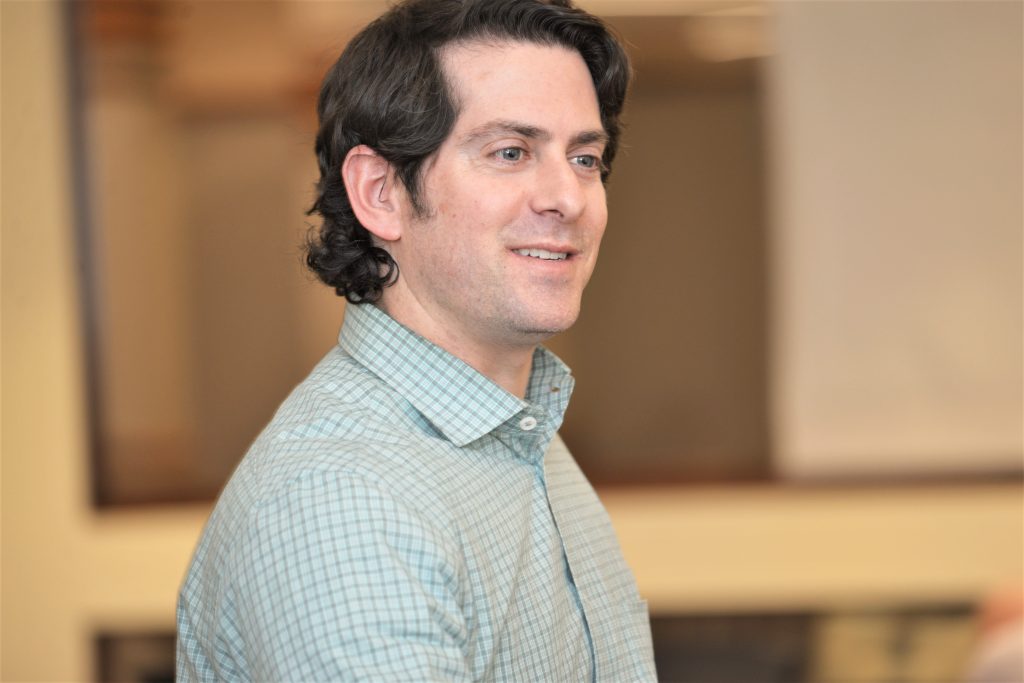
With guidance from alumni and professionals from a wide range of industries, 19 DePaul University students spent the spring quarter of 2018 developing businesses during a startup launch program hosted by the Coleman Entrepreneurship Center and the Founder Institute.
Students worked on various aspects of their business plans with the help of 50 mentors. Jason Jacobsohn (MBA ’02), director of the Founder Institute’s Chicago chapter, facilitated the program at DePaul.
Based in Silicon Valley, the institute hosts idea-stage accelerator programs for aspiring entrepreneurs throughout the country and the world, and has helped participants develop nearly 3,000 companies. This is the first time the institute has brought its program to a university.
Accelerator programs allow students to explore an idea while they have a safety net,” says Coleman Assistant Director Abigail Ingram.
“Students have access to all of the university’s resources and networks, and expertise in every possible area, so it’s one of the few times in their lives where they will be plugged into a network of PhDs and specialists as well as experiential opportunities.”
To qualify for the free program, students were required to fill out an application and take the Founder Institute’s aptitude test, which assesses problem-solving abilities, agreeableness and openness—qualities of a successful entrepreneur. The Coleman Center also hosted a mini version of the institute’s program in fall 2018 to gauge whether it was a right fit for DePaul students.
DePaul’s Entrepreneurship Ecosystem
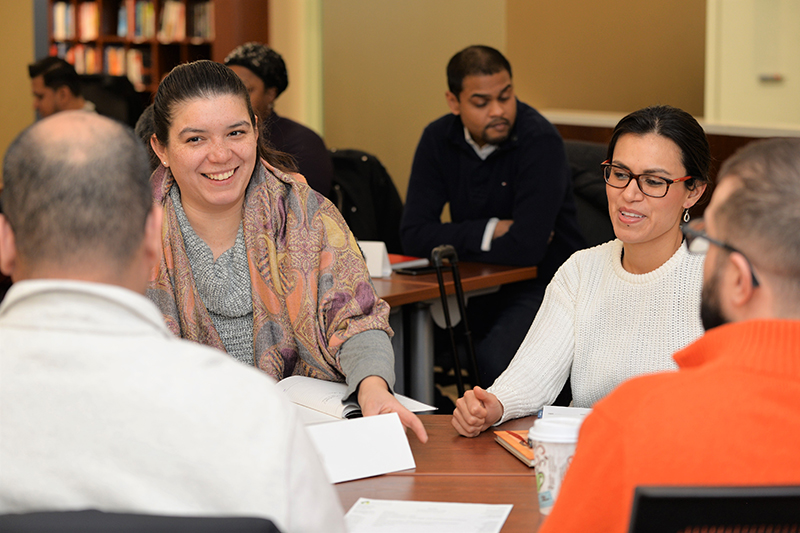
An adjunct instructor at the business college, Jacobsohn formed the Chicago chapter of the Founder Institute in 2011. Typically, the institute requires that participants’ business ideas be based in the tech industry and that applicants pay a program fee. Jacobsohn says while the DePaul-based program is free, students are held accountable through an online system that tracks the progress of their businesses.
“The entrepreneurship ecosystem at DePaul is very diverse, so we’re letting the students build whatever business they want to build,” Jacobsohn says. “They also have to be prepared every week to present to mentors so that by the time they’re done with the program, if they want to present to other stakeholders or a board, potential hires, co-founders, or investors they get really good and comfortable to present their business.”
During the first half of the program, students spent about 10 to 15 hours a week working on research to see if their business idea is a viable opportunity. In the second half, students worked on building the company by incorporating, developing a revenue model, putting together a market strategy and developing a solution to the problem for their business to solve.
Turning an Idea Into a Business
To further their business idea, undergraduate finance majors Austin Garwood and Tyler Cornelius decided to participate in the Founder Institute pilot accelerator program in fall 2017.
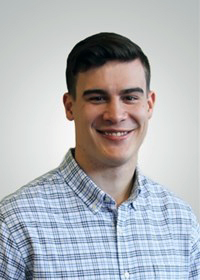
The two, who are DePaul transfer students, formed their idea as roommates during their sophomore year at the University of Missouri. An avid video game player, Garwood wanted to buy the headphones he really wanted—a pair of headphones designed in a galaxy skin—but also wanted the option of a neutral pair of headphones that wouldn’t clash with his clothes.
“In the headphone market, Beats has 400-something different colors in sports team patterns and all these crazy designs to choose from,” he says. “You have to choose one pair and stick with it, and if you want another pair, it’s another $300. So what we’re trying to do is create one pair of headphones that can be all of that at once.”
In addition to applying to more rigorous accelerator programs, Cornelius and Garwood are hoping that by the end of the accelerator program they have obtained a prototype and design for their product so that they can eventually obtain their intellectual property.
So far, the program has forced them to improve their elevator pitch by presenting their business idea to fellow founders and mentors. Jacobsohn also encouraged them to collect feedback on their product and business idea by conducting customer interviews and narrowing their target audience and price point.
“The biggest thing that we’ve gotten from the Founder Institute is just all of the connections that we’ve been able to make with people, especially the mentors they bring in,” Garwood says. “Jason and all of the mentors have given really good information on how to go about developing our ideas into an actual business and what it takes to go from an idea to getting to the market to creating an actual company.”
By Jaclyn Lansbery
Connections: Jake Glover and Kim Kozeny
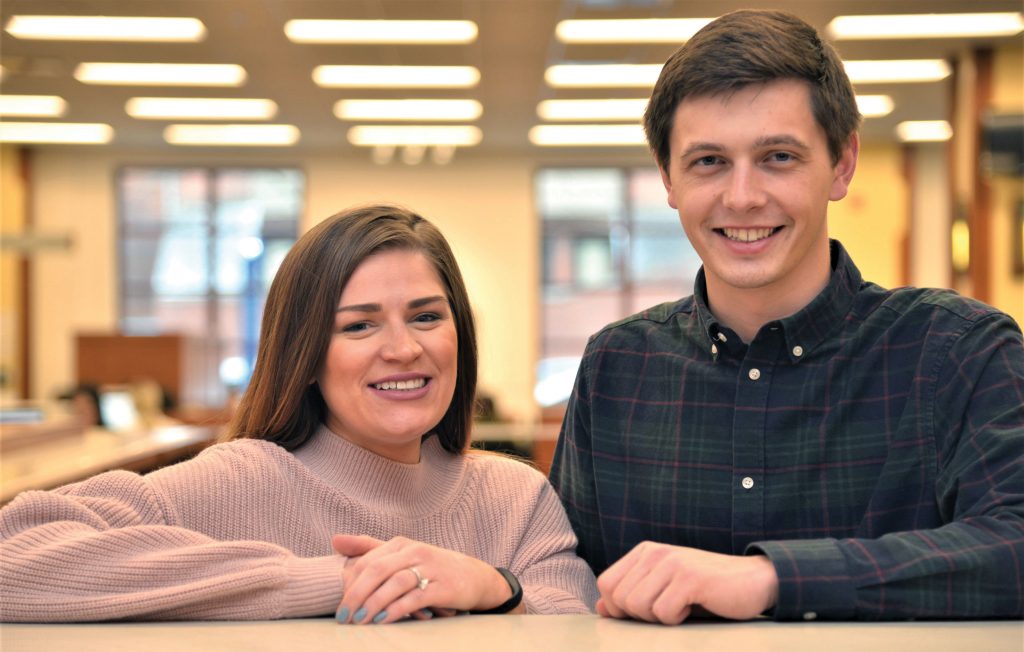
Last spring, Jake Glover (BUS ’17) was a senior marketing major quickly approaching graduation when he went to see MaryAnn Gibney, who was the manager of student and alumni engagement at the Center for Sales Leadership at DePaul.
Glover was interested in working for Jellyvision, an interactive employee communication software company, and sought Gibney’s help in finding a connection at the Chicago-based company. Serendipitously, Gibney had just returned from lunch with Kim Kozeny (BUS ’09), who expressed an interest in becoming a mentor and was working at that time as a Jellyvision account executive.
“Really good mentors genuinely want to help mentees,” says Glover. “(They) take them under their wing and rise up with them.”
That is what Kozeny did for Glover. During casual conversations that spanned a range of topics, Glover asked Kozeny what it is like to work at Jellyvision, how to get a job there and what he could do to stand out as a job candidate. Kozeny knew how much Glover wanted to join Jellyvision, so she introduced him to her sales leadership team. Glover made a great first impression and was invited to return the following week for an interview.
“As a mentor, it’s important to understand what your mentee wants out of your relationship,” says Kozeny.
It is my job to help them find out what they are passionate about and to help fulfill that passion.”
Kozeny prepared Glover for the Jellyvision job interview, giving him feedback on his sales pitch, suggesting resources to read about the company and going over the interview process.
“I’ve been very lucky with the people who have mentored me in the past,” says Kozeny. “They gave me confidence to follow my own career aspirations. To do that for someone else is extremely fulfilling.”
Glover landed a job at Jellyvision as a business development representative and has been working there for more than a year. He now hopes to move up into an account executive role and continues meeting with Kozeny for career advice.
One of Glover’s former classmates has recently expressed interest in working for Jellyvision, so he has reached out to her in what he calls a “mini-mentor” role. Glover says it is his chance to pay it forward.
Learn more about business mentorship programs.
By Andrew Zamorski | Photo by Kathy Hillegonds
